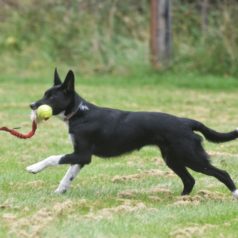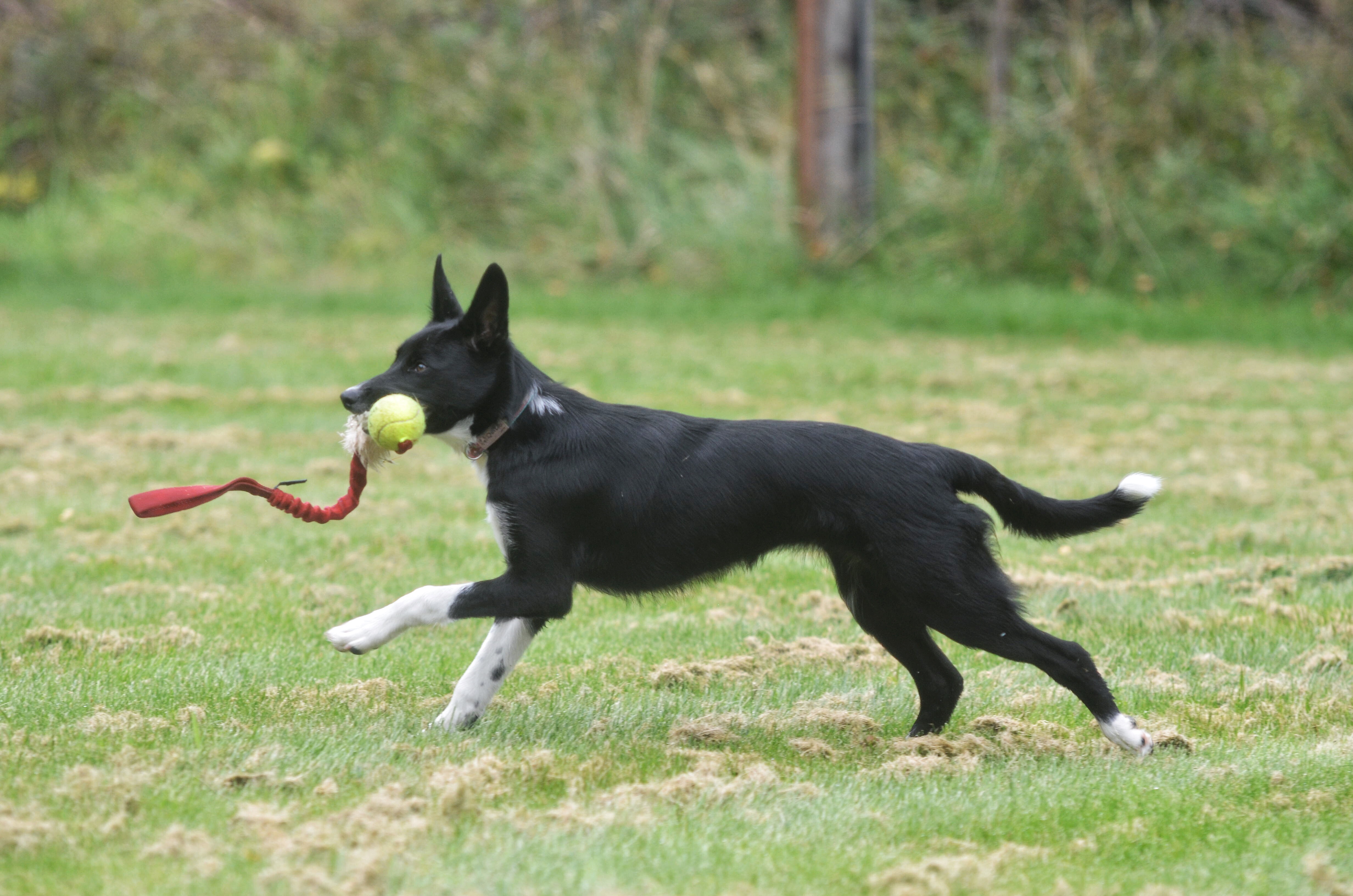
Dog Training and Understanding
“I can’t believe it! Another session where I wanted her to turn right, but I gave the cue for turning left over and over without realising”. One of my friends was very upset with herself after an agility session yesterday. I think many agility trainers and handlers have been in this situation. Always giving the right cue is hard! This is interesting to me, because we expect our dogs to respond correctly to our cues at all times, and to always perform according to criteria. If they don’t, we often conclude that they “don’t understand”.
Understanding is a vague concept, and also maybe not as important as we think. There are a lot of things that I as a human “understand”, but still manage to get wrong a lot of the time. Like giving the right cue while running agility, not pulling on a door when there’s a sign that says “push”, not eating that piece of chocolate cake that I understand is bad for me, and so on. On the other hand, there are things that I do that are driven by reinforcement or punishment that I don’t understand. I might not even be aware of them. Change in behavior often happens long before we consciously are aware of how we changed something, or even why. I suspect that many of the behaviors that I perform without understanding – or even awareness – are stronger than some that I understand I should perform…

Understanding and teaching new beahviors
When teaching new behaviors, some people are reluctant to reward behaviors that happen without apparent intent from the dog. When I ask why the (correct) behavior wasn’t rewarded, the answer often is “But he didn’t do it on purpose!”. My answer is always to not worry about what the dog is thinking, instead only focusing on what the dog is doing. Reinforcement builds behavior, whether the behavior is deliberate or not. Grab any chance to reinforce the behavior that you want! It’s really cool to capture behaviors with a puppy or a dog not used to training. First, you’ll see the behavior becoming more frequent without any apparent “understanding” from the pup. Second, you’ll see the lightbulb moment, where the dog goes: “Really?! If I do this, I get a treat?” and they do it again with more obvious intent. With more experienced dogs, the “understanding” part usually happens much faster, as they are used to the concept of training and are deliberately looking for understanding in a different way. That said – just because the dog seems to “understand” that a behavior leads to reinforcement does not mean that we’ll have a solid understanding every time.
Getting a solid performance – What’s understanding got to do with it?
So why is it that we often experience that our dogs does not perform like we think we have taught them? There’s one type of dog trainer that will say: “I’m sure that he knows it, he just choses do to otherwise”. This is often associated with a more traditional training style, where the dog should perform because we say so, and failure to do so is a sign of the dog giving us the finger. At the other end of the spectrum, I find friends and clients who will say “He made a mistake, so I don’t think he understands at all”. The notion is that if the dog just understands, he’ll be perfect every time. And superficially, that makes sense. If the dog knows that x leads to reinforcement and y leads to nothing – why wouldn’t he chose x every time? There are many reasons why our training fails to produce perfect performance every time. I could probably write a book just listing things that we often do wrong, or fail to consider. And I still wouldn’t have all the answers.
I do think that it is possible – maybe even productive – to talk about the dog “understanding”. There is a difference between knowing what you’re doing and just doing it without ever thinking about it. I think that is true for dogs as well. The first layer of understanding might be that “lightbulb moment” where the dog seems to deliberately perform the behavior in order to get reinforcement. The next step could be when we see the dog fixing a mistake after a no reward event. Third layer could be when the dog is able to use the “understanding” to perform the behavior when we change the setting. I definitely feel more confident in my dogs understanding if I see that they have the ability to correct a mistake that they make and to figure out how to perform the behavior in a different setting.
Reinforcement still trumps understanding
It’s important to remember that “understanding” is a vague term and that it in no way is a guarantee – or even a requirement – of solid performance. It doesn’t matter if the dog understands the behavior if it isn’t important to him. Reinforcement makes the behavior important. The dog must want to do it for understanding to even be a factor to consider. Understanding without motivation is worthless. And there’s another thing: Even if the dog both wants and knows, it must be important to him to get it right on the first try. Let’s talk about human behavior again:
There are lots of things that I know how to do and am motivated to do. Like writing right now. I know that the letter “K” on my keyboard makes the letter k appear on the screen. And I want it too, because I want to write “keyboard” and I also like it to be easy to read. I still quite often hit the “L” when I try to write keyboard. It’s not a big deal, because just as quickly as I hit that wrong key, I can correct it with the back space key and keep on writing. I do that a lot. Not because I don’t know how to do it, but because it’s easier to make a few mistakes and correct them as I go, than to try to be perfect on the first try. Now if I had to find correction fluid to fix my error, or maybe start the whole blog post over again, I’d be much more careful with my fingers (and a lot slower).
I think the same often is true for dogs, especially dogs that are highly motivated and like to do things fast. It doesn’t matter if they miss that weave entry the first time, because we’ll call them back and send them back in in no time. It doesn’t matter to them if they sit when we ask them to “down”, because we’ll repeat that cue in a second and they can fix it really fast. If we want them to care about getting it right the first time, we have to make it important to be correct on the first try.
Also: Sometimes I just forget things. I know that I absolutely know the answer to a question, but I can’t seem to retrieve it from my mind at that moment. This happens most often when I’m really stressed and short on time. Sometimes I make a mistake with something I’ve done a thousand times without problems. Sometimes I forget things. It’s human. And dogs are human too in this regard.
Comment!
What is understanding to you? Which factors are most important in creating a reliable behavior? I hope to be able to get back to you with more ideas on what should be considered during the weekend. I sprained my ankle quite badly yesterday, and might have to spend more time in front of the computer than I’d like.


